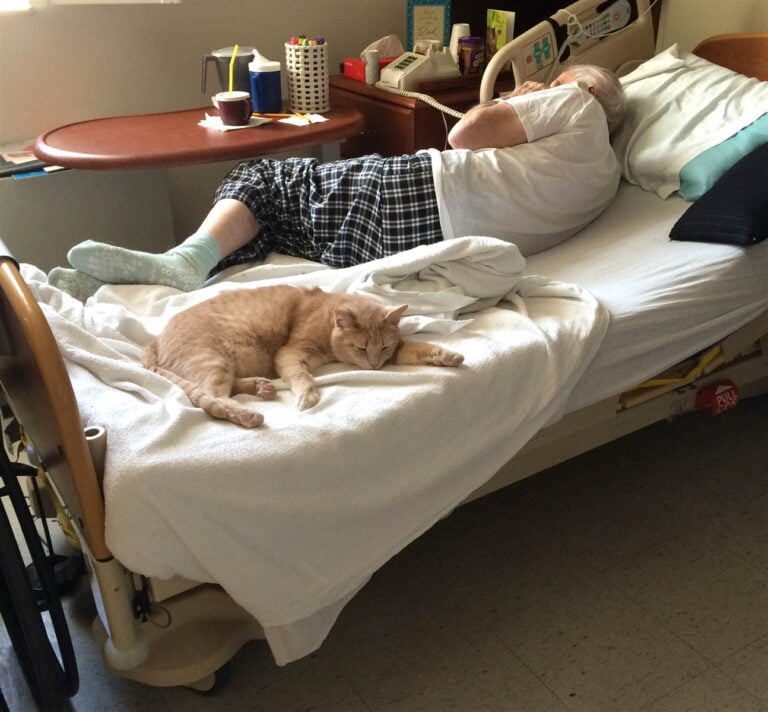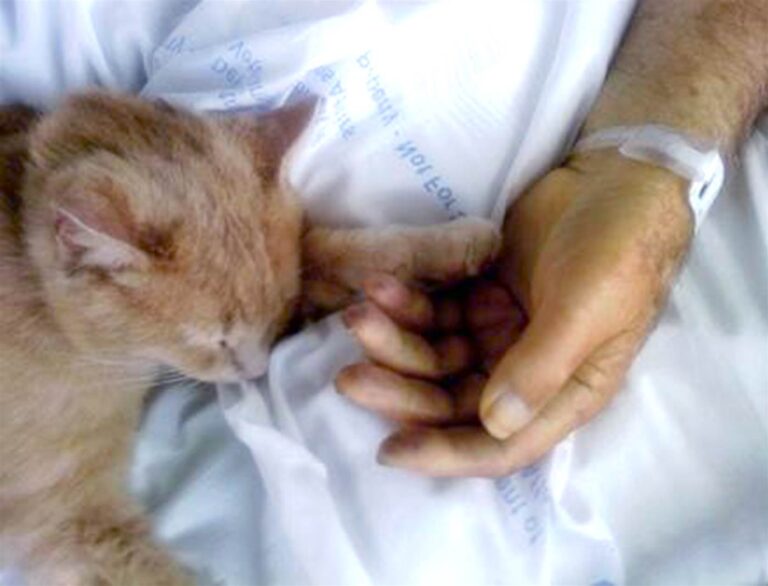What type of animal typically comes to mind when you think about service pets? For many of us, dogs come to mind when we think of animals that aid people with therapy or other services. Well, Tom is a cat with very special gifts he shares in providing care and compassion to our ailing veterans.
As reported on Today by Stephanie Stephens in a story titled “Tom the cat has ‘sixth sense’ in comforting ailing veterans,” Tom is the appointed feline friend, counselor and caretaker at Salem VA Medical Center in Salem, Virginia. At the center that provides rehabilitative, hospice/palliative care and long-term skilled nursing, Tom is revered as an animal that sometimes knows more about empathy in the moment than the people who simply love him for being “Tom.”
Bassett, Virginia Army veteran James Gearhart was recently discharged following treatment for throat cancer while living in the rehabilitation unit. According to Mr. Gearhart, “You can’t beat a good, purring, loving kitty cat.” Gearhart continued, “Tom knows when someone is having a hard time. He laid on my bed a lot and I rubbed and scratched him…”
Salem VA Medical Center chief of extended care service Dr. Blake Lipscomb recounted a time Tom stayed by the side of a veteran and his family providing emotional support and comfort during their most difficult time. Tom was by Dr. Liscomb’s side the day he had to officially pronounce the veteran dead. “Tom looked up at me and meowed…[Tom did] exactly what we wanted him to do…”
Tom was found around 2012 with the assistance of a local veterinarian’s office manager due to the efforts of the hospital’s extended care service chief nurse Dottie Rizzo and physician assistant Laura Hart. Rizzo and Hart read a book by geriatrician Dr. David Dosa titled “Making Rounds with Oscar” that told the story of a cat named Oscar who comforts dementia patients and seems able to anticipate when they are near death. According to Rizzo, “We knew we needed a cat just like that. We…visited with… cats… a long time before deciding on Tom.”
Hart and Rizzo recognize that not all patients, their families and even hospital staff like cats. For that they have a “No Cat Zone” sign that indicates to non-cat-lovers that Tom will not be in that area. Both tell stories however, about “non-cat-lovers” warming to Tom. “There are patients who say they don’t love him, but they do end up loving him anyway – they just don’t know it!” Hart said. Rizzo added, “Then there are families that say they’re ‘allergic.’ Within a week, they’re bringing a treat for the cat! …”
For the veterans, their families and staff who do let Tom into their lives, the calming effect he has emotionally, psychologically and even physically, is undeniable. One time this terminal patient with Parkinson’s disease was having difficulty speaking. By holding Tom in his lap while petting him, the patient’s speech improved as his vocal cords relaxed due to the calming effect created by Tom.




